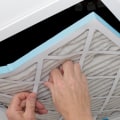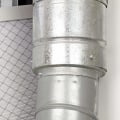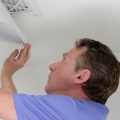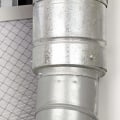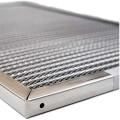Usually, a filter with a higher MERV rating will reduce airflow. However, there are many other factors at play, such as the size of the filter and the type of fan motor in your HVAC system. Filters for central HVAC systems are often the primary form of particulate removal for residential and commercial buildings. The short answer is that it can, but it's not really a problem except in extreme circumstances.Most modern HVAC systems have no problem working with higher MERV filters, so millions of homeowners rely on them.
The main risk of high-efficiency air filters comes from the fact that they are not modified for long periods of time. If you're aware of changing filters, you're unlikely to experience filter-related issues with your HVAC system. Using an air filter with a MERV rating that is too high is as bad as using one that is too low.Air filters with higher MERV ratings may filter more, but the thickness of the filter material may restrict airflow. Restricted airflow can decrease comfort, increase energy use, and accelerate wear of HVAC components.
In particular, using an air filter with a too high MERV rating can damage the compressor, heat exchanger, and air conditioner coil. A higher MERV rating means greater resistance, which means less airflow.When researching HVAC systems, airflow will increase a lot. This is because it is very important to the performance and longevity of your oven or your air handler. Airflow is also the key to a comfortable home.
As you can see above, research shows that overall, HVAC systems with high MERV* filters have a higher pressure drop across the filter.This part is common to the three previous studies. MERV 5 to 8 consist of disposable pleated media filters. The cost is about four times higher than MERV 1-4 spun glass fiber filters, but they have much better contaminant removal capabilities. Searching for a filter in this category for your home can be a little more complicated because there is more to understand about how your specific HVAC system works.In this case, you want to have the air as clean as possible without restricting airflow to your HVAC unit and wasting energy.
According to the United States Environmental Protection Agency, filters in the 7-13 range often have little difference from higher MERV ratings, but they will allow your system to operate much more efficiently. The same goes for households with smokers or pets, as Merv 11 air filters are better at eliminating odors. With the lowest MERV rating (1-), the filter will continue to capture pollen, dust mites, cockroach debris, sanding dust, spray paint dust, textile fibers and carpet fibers.Fiberglass filters keep debris out of your system and trap large particles, but particles small enough for you to breathe can still pass through. It is important to keep this in mind, because many owners believe that the relationship is simply linear, that is, as filtration efficiency increases, so does the resistance to air flow at the same rate.
Owning pets would require a MERV 10 to control their dander, which tends to have smaller particles than the contaminants discussed above. The MERV scale is not linear; the difference between a MERV 6 and a MERV 8 is almost double in the percentage of particles captured.Your intention should be to achieve the right balance between air filtration levels, air flow and energy efficiency. Here's what you need to know to make sure you have the right MERV rating compared to the airflow filter for your space. The higher the MERV, the more restrictive the airflow through the device, causing the equipment to work harder.
Through this site and the trails that led me, I have learned that two MERV 11 filters can have the same filtering capacity, but one could allow more air to be transferred.Even though some filters are made to last several years, most filters will work between three and five months and then need to be replaced for maximum overall performance, says Kevin Wood of Camfil.
